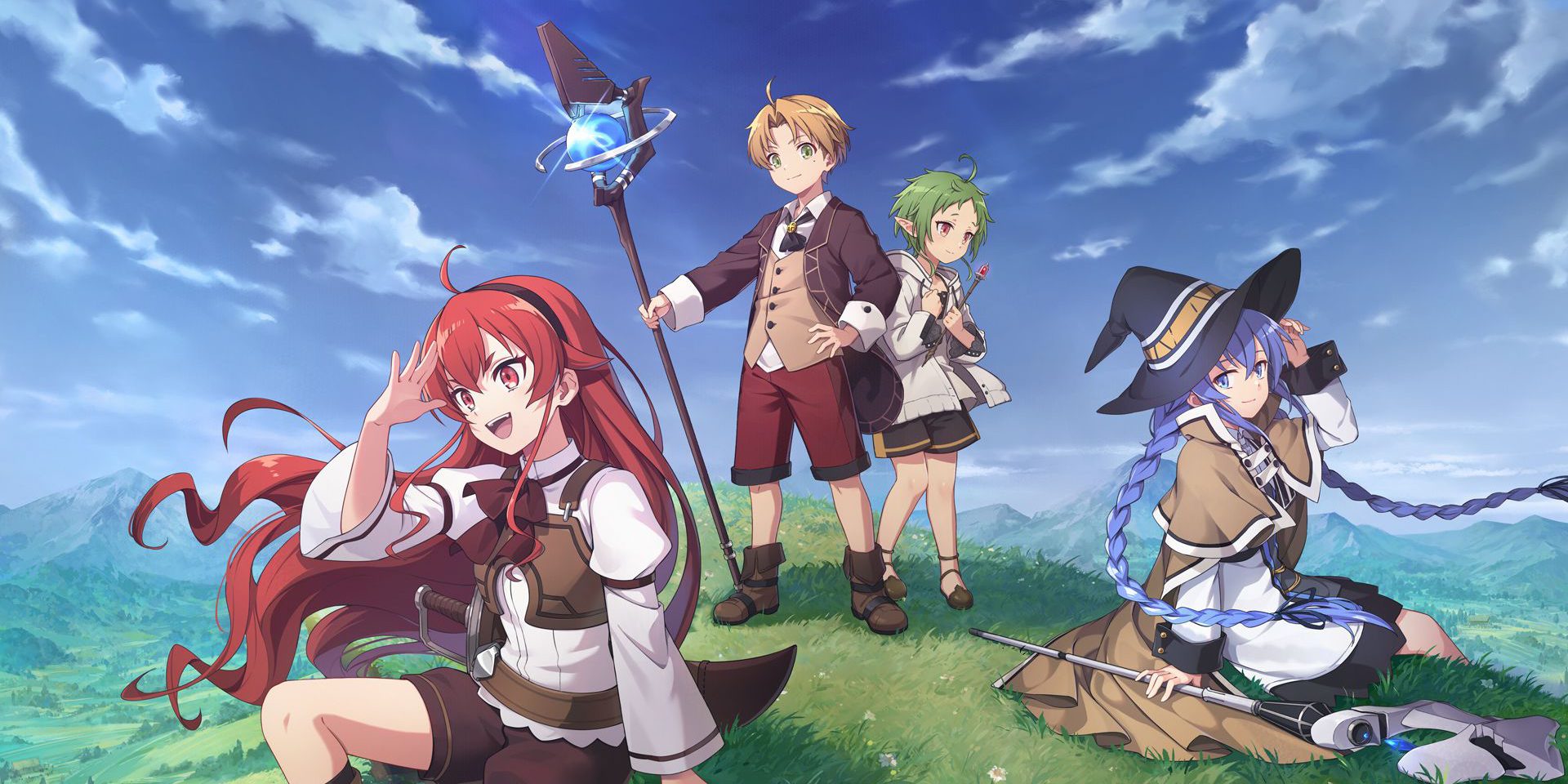
Mushoku Tensei Marks A New Generation Of Isekai Anime
The isekai genre has produced some of the best and most popular anime over the last 50 years. The word “isekai” translates to “another world”; in this genre, protagonists are transported to fantasy worlds or alternate realities, often acquiring magical powers or special abilities. There is huge scope for imagination and creativity among these stories, which is probably why the genre has remained popular for so long. Whenever it feels like it’s becoming stale and saturated with the same kinds of stories, a new series comes along and breaks the bounds of what we’ve come to expect. Mushoku Tensei: Jobless Reincarnation is that series.
To a large extent, isekai stories have evolved outside of the major publishing companies. Many of the most popular series began as web novels, allowing them to gather a solid fan following and eventually attract the attention of publishers. One of the best-known isekai anime, Sword Art Online, is based on a web novel by Reki Kawahara. The story follows a group of players trapped in a virtual-reality MMORPG (massively multiplayer online role-playing game) who must beat all 100 levels to escape. Sword Art Online is a great example of how imaginative the isekai genre can be. While many stories have traditionally featured fantasy worlds, modern isekai works are venturing into even more diverse and fascinating settings.
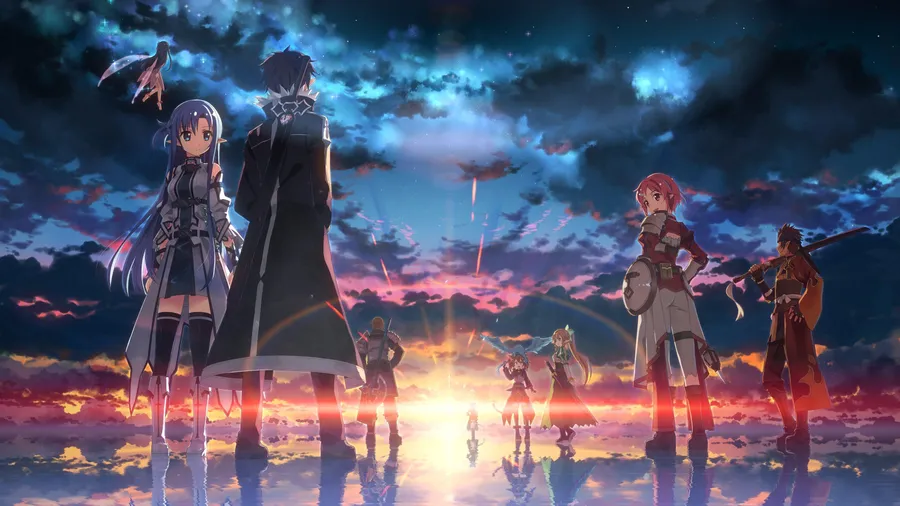
Inuyasha is a more classic isekai story and a great entry point for newcomers to the genre. Written and illustrated by Rumiko Takahashi, it follows a teenage girl named Kagome Higurashi who is transported to the Sengoku period of 15th-century Japan after falling through a well in her family shrine. She meets a half-dog demon, half-human named Inuyasha, and together they set out to recover the fragments of the Shinon Jewel.
Inuyasha combines all the classic elements of a great isekai story: romance, action, and drama, along with memorable characters and stunning artwork. Takahashi explored darker themes than in many of her previous works, using the Sengoku period as a backdrop to the tension and violence that plays out during the story. The original anime was accompanied by four feature-length animated movies that provided backstories and additional plotlines with beautiful art and masterful storytelling.

Re: Zero – Starting Life in Another World is a popular anime (even if it is one of the saddest) that shows the diverse tone and themes within the isekai genre. Our protagonist, a young man named Natsuki Subaru, is transported to another world and, after being attacked and killed, he discovers that he has the power to resurrect himself.
The toll that Subaru’s recurrent deaths and resurrections take on him is at the heart-breaking core of the show. Only he remembers what happened before each resurrection. At times, he is forced to sacrifice himself to achieve better outcomes for those around him, while other times he dies by sudden and unexpected violence. He cannot tell anyone about his power, leaving him suffering in isolation as he experiences these painful deaths. Re: Zero offsets some of its pervasive darkness with humor but all in all it’s a pretty depressing show. It’s a good example of how, under the isekai umbrella, creators have the freedom to explore stories with vastly different tones, themes, and characters.
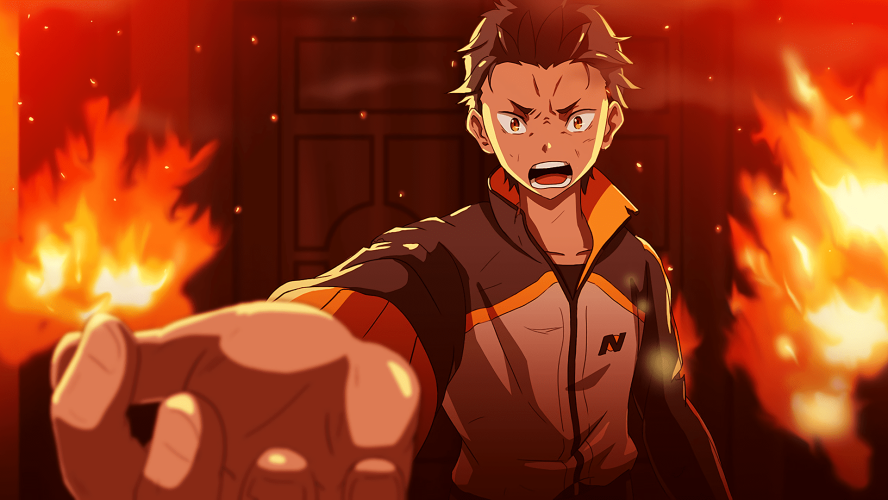
Despite these differences, there are certain tropes that are prevalent in some anime and manga of the isekai genre. Tell me if this sounds familiar: the main character is male and an isolated loner, shut-in (hikikomori), or what’s known as a NEET (not in education, employment, or training). These protagonists lack power in their regular lives and are typically romantically unsuccessful. However, in the alternate or fantasy world to which they’re transported, they typically gain new powers and authority and are often surrounded by beautiful, overpowered women. The term “harem” is used to describe these female characters, as their role is mostly about wish fulfillment and fan service and they add little to the story.
There are many isekai series that parody these tropes. I’m in Love with the Villainess, Trapped in a Dating Sim, and I Got Reincarnated as a Slime all subvert the traditional harem trope, with characters rejecting the notion or experiencing more unhappiness than satisfaction from these interactions. KonoSuba: God’s Blessing on this Wonderful World! is a great example of where the protagonist’s group of “overpowered” girls turn out to be more of a hindrance than a help. With Aqua’s incompetence, Darkness’ masochism, and Megumin being a “one-trick-pony” (if she can’t use her Explosion spell, she doesn’t want to hear about it), you could argue that Kazuma’s life might be easier without them.
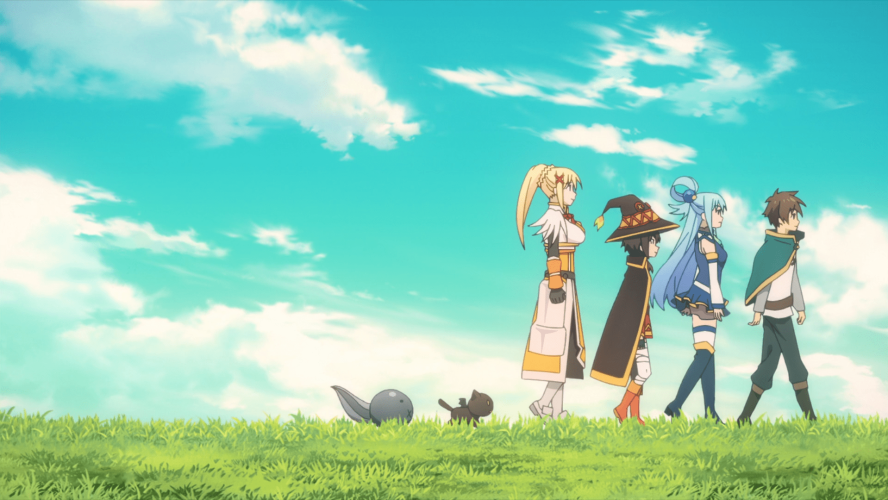
Mushoku Tensei: Jobless Reincarnation is one isekai series that seems to lean into these tropes but also to challenge and deconstruct them. One of the most popular but controversial isekai anime of all time, the series’ protagonist is a 34-year-old man who is an unemployed, sex-obsessed loner. After being hit by a speeding lorry, he is reincarnated in a fantasy world as a baby – but with the mind and memories of his previous life as a grown man.
Mushoku Tensei’s main character, Rudeus Greyrat, is its most polarizing and controversial feature. Prior to reincarnation, he was a selfish, unemployed loner with troubling attitudes toward sex. Author Rifujin na Magonote emphasizes the importance of Rudeus’ transformation as a central aspect of the show. In an interview with Anime News Network, na Magonote said “Because he’s a controversial character, his mountain of regrets makes the act of redoing life more meaningful.”
Given that Rudeus has the mind of a grown man, his actions, particularly early in his reincarnated life, make for uncomfortable viewing when he steals women’s underwear, keeps them as mementos, and makes dolls of a certain female character with removable clothes. As he grows into a teenager and starts to have sexual encounters with girls of the same age, it’s hard to forget that he is, in reality, a grown man. While Rudeus’ earliest behavior can be seen in the context of his needing to grow and mature as a person, it’s hard to continue to forgive his actions and attitudes over time.
The world of Mushoku Tensei is one aspect of the show that draws praise from all sides. Set in a medieval fantasy world, the series explores the intricate political structures and social issues slowly over time. The magic system is imaginative, interesting, and beautifully brought to life in the anime. The show’s art style is a major reason for its popularity, with incredible background imagery and character design. The story takes its time, focusing on character development and world-building rather than explosive action sequences. The pace is deliberate and considered, creating a compelling show that pulls viewers in from the first episode.
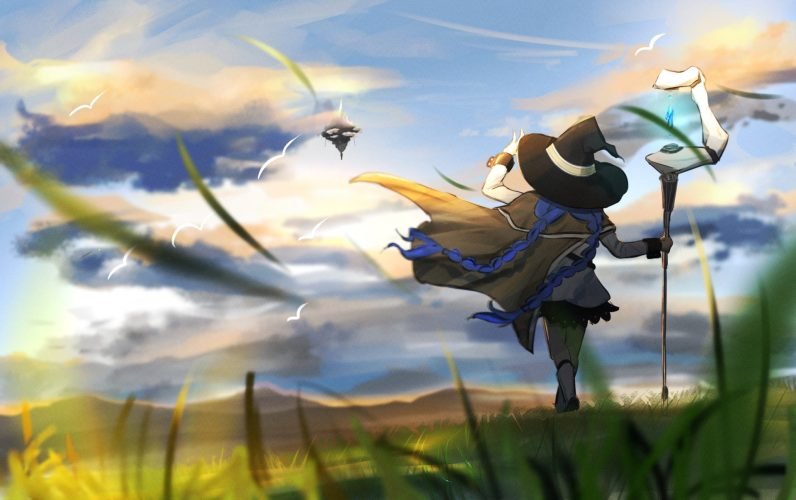
Mushoku Tensei is a more complex show than many we see in the isekai genre. It’s certainly controversial, but many fans and critics appreciate the issues it is trying to tackle, even if it handles them in strange or tasteless ways at times. Despite its controversies, it marks an important shift in the genre. Modern attitudes demand a fresh perspective on female representation and attitudes toward sex while moving away from the portrayal of the unpopular and isolated protagonist of many isekai stories.
While these tropes can be useful storytelling devices, they risk making the genre stagnant and over-saturated with the same stories. Intelligent parodies such as KonoSuba: God’s Blessing on this Wonderful World! find ways to honor and poke fun at the classic elements of the isekai genre. Mushoku Tensei does the same thing, without being an overt parody. The series emphasizes learning and growing despite one’s flaws. It acknowledges that real change is slow and paces itself deliberately to reflect this. Over time, it’s likely that more isekai stories will follow in its footsteps and confront the limiting tropes the genre is sometimes known for.
There will always be a place for isekai stories in pop culture. Fantasy realms, alternate or virtual realities, and historical settings offer endless possibilities and opportunities for creativity and fresh perspectives. Series like Mushoku Tensei pave the way for the genre’s growth and expansion, breaking boundaries and new ground all at once. With the incredible talent possessed by isekai authors, we’re excited to see what comes next from the genre and how it will adapt to the modern world.
Are you a fan of the isekai genre? Have you watched Mushoku Tensei and, if so, what do you think of it? Let us know in the comment section below. And don’t forget to sign up to our email list to get Finds of the Week and our free newsletter, PopPulse Digest, delivered straight to your inbox.
CHECK OUT THE CAPITAL CITY SELECTIONS DEALS PAGE FOR YOUR TOP FINDS!
This article contains links to external sellers and affiliate marketing. As Amazon associates, we earn from qualifying sales.
More Stories
Chainsaw Man Explained: Why It’s one of the Most Unique Shonen Manga Today
CLICK HERE Chainsaw Man Box Set As a writer and storyteller, whenever creative burnout gets to me, re-experiencing stories near...
Top 10 Most Popular Anime: 50-Plus Years of Hits
Article Summary Discover the top 10 most influential anime series that shaped global pop culture over the past 50-plus years....
Get Excited Sailor Moon Manga Prequel Series Gets New Release
GET NOW Big news, sailor scouts! Codename: Sailor V is getting a U.S. re-release as part of the Naoko Takeuchi...
Classic And Ground-Breaking, Cowboy Bebop Is Still One Of The Best Anime
Three, two, one, let’s jam.More than two decades after it first aired, Cowboy Bebop still tops many lists of the...
How Junji Ito Became Synonymous With Horror Manga
When you search online for the best horror manga, one of the first results is the question, “What horror manga...
When Is The Hunter X Hunter Manga Coming Back?
Hunter x Hunter fans have waited a long time for the return of their beloved manga. Created by Yoshihiro Togashi,...


